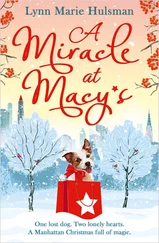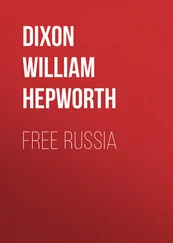Nikolai Nekrasov - Who Can Be Happy and Free in Russia?
Здесь есть возможность читать онлайн «Nikolai Nekrasov - Who Can Be Happy and Free in Russia?» весь текст электронной книги совершенно бесплатно (целиком полную версию без сокращений). В некоторых случаях можно слушать аудио, скачать через торрент в формате fb2 и присутствует краткое содержание. Год выпуска: 2005, Жанр: Поэзия, на английском языке. Описание произведения, (предисловие) а так же отзывы посетителей доступны на портале библиотеки ЛибКат.
- Название:Who Can Be Happy and Free in Russia?
- Автор:
- Жанр:
- Год:2005
- ISBN:нет данных
- Рейтинг книги:3 / 5. Голосов: 1
-
Избранное:Добавить в избранное
- Отзывы:
-
Ваша оценка:
- 60
- 1
- 2
- 3
- 4
- 5
Who Can Be Happy and Free in Russia?: краткое содержание, описание и аннотация
Предлагаем к чтению аннотацию, описание, краткое содержание или предисловие (зависит от того, что написал сам автор книги «Who Can Be Happy and Free in Russia?»). Если вы не нашли необходимую информацию о книге — напишите в комментариях, мы постараемся отыскать её.
Who Can Be Happy and Free in Russia? — читать онлайн бесплатно полную книгу (весь текст) целиком
Ниже представлен текст книги, разбитый по страницам. Система сохранения места последней прочитанной страницы, позволяет с удобством читать онлайн бесплатно книгу «Who Can Be Happy and Free in Russia?», без необходимости каждый раз заново искать на чём Вы остановились. Поставьте закладку, и сможете в любой момент перейти на страницу, на которой закончили чтение.
Интервал:
Закладка:
The village was poor
And the food there was scanty,
But still, the two brothers
Grew certainly plumper 80
When home for the holidays—
Thanks to the peasants.
The boys would repay them
By all in their power,
By work, or by doing
Their little commissions
In town. Though the deacon
Was proud of his children,
He never had given
Much thought to their feeding. 90
Himself, the poor deacon,
Was endlessly hungry,
His principal thought
Was the manner of getting
The next piece of food.
He was rather light-minded
And vexed himself little;
But Dyómna, his wife,
Had been different entirely:
She worried and counted, 100
So God took her soon.
The whole of her life
She by salt [62] There was a very heavy tax laid upon salt at the time.
had been troubled:
If bread has run short
One can ask of the neighbours;
But salt, which means money,
Is hard to obtain.
The village with Dyómna
Had shared its bread freely;
And long, long ago 110
Would her two little children
Have lain in the churchyard
If not for the peasants.
And Dyómna was ready
To work without ceasing
For all who had helped her;
But salt was her trouble,
Her thought, ever present.
She dreamt of it, sang of it,
Sleeping and waking, 120
While washing, while spinning,
At work in the fields,
While rocking her darling
Her favourite, Grísha.
And many years after
The death of his mother,
His heart would grow heavy
And sad, when the peasants
Remembered one song,
And would sing it together 130
As Dyómna had sung it;
They called it "The Salt Song."
Now none but God
Can save my son:
He's dying fast,
My little one….
I give him bread—-
He looks at it,
He cries to me,
"Put salt on it." 140
I have no salt—
No tiny grain;
"Take flour," God whispers,
"Try again…."
He tastes it once,
Once more he tries;
"That's not enough,
More salt!" he cries.
The flour again….
My tears fall fast 150
Upon the bread,—
He eats at last!
The mother smiles
In pride and joy:
Her tears so salt
Have saved the boy.
Young Grísha remembered
This song; he would sing it
Quite low to himself
In the clerical college. 160
The college was cheerless,
And singing this song
He would yearn for his mother,
For home, for the peasants,
His friends and protectors.
And soon, with the love
Which he bore to his mother,
His love for the people
Grew wider and stronger….
At fifteen years old 170
He was firmly decided
To spend his whole life
In promoting their welfare,
In striving to succour
The poor and afflicted.
The demon of malice
Too long over Russia
Has scattered its hate;
The shadow of serfdom
Has hidden all paths 180
Save corruption and lying.
Another song now
Will arise throughout Russia;
The angel of freedom
And mercy is flying
Unseen o'er our heads,
And is calling strong spirits
To follow the road
Which is honest and clean.
Oh, tread not the road 190
So shining and broad:
Along it there speed
With feverish tread
The multitudes led
By infamous greed.
There lives which are spent
With noble intent
Are mocked at in scorn;
There souls lie in chains,
And bodies and brains 200
By passions are torn,
By animal thirst
For pleasures accurst
Which pass in a breath.
There hope is in vain,
For there is the reign
Of darkness and death.
In front of your eyes
Another road lies—
'Tis honest and clean. 210
Though steep it appears
And sorrow and tears
Upon it are seen:
It leads to the door
Of those who are poor,
Who hunger and thirst,
Who pant without air.
Who die in despair—
Oh, there be the first!
The song of the angel 220
Of Mercy not vainly
Was sung to our Grísha.
The years of his study
Being passed, he developed
In thought and in feeling;
A passionate singer
Of Freedom became he,
Of all who are grieving,
Down-trodden, afflicted,
In Russia so vast. 230
The bright sun was shining,
The cool, fragrant morning
Was filled with the sweetness
Of newly-mown hay.
Young Grísha was thoughtful,
He followed the first road
He met—an old high-road,
An avenue, shaded
By tall curling birch trees.
The youth was now gloomy, 240
Now gay; the effect
Of the feast was still with him;
His thoughts were at work,
And in song he expressed them:
"I know that you suffer,
O Motherland dear,
The thought of it fills me with woe:
And Fate has much sorrow
In store yet, I fear,
But you will not perish, I know. 250
"How long since your children
As playthings were used,
As slaves to base passions and lust;
Were bartered like cattle,
Were vilely abused
By masters most cruel and unjust?
"How long since young maidens
Were dragged to their shame,
Since whistle of whips filled the land,
Since 'Service' possessed 260
A more terrible fame
Than death by the torturer's hand?
"Enough! It is finished,
This tale of the past;
'Tis ended, the masters' long sway;
The strength of the people
Is stirring at last,
To freedom 'twill point them the way.
"Your burden grows lighter,
O Motherland dear, 270
Your wounds less appalling to see.
Your fathers were slaves,
Smitten helpless by fear,
But, Mother, your children are free!"
A small winding footpath
Now tempted young Grísha,
And guided his steps
To a very broad hayfield.
The peasants were cutting
The hay, and were singing 280
His favourite song.
Young Grísha was saddened
By thoughts of his mother,
And nearly in anger
He hurried away
From the field to the forest.
Bright echoes are darting
About in the forest;
Like quails in the wheat
Little children are romping 290
(The elder ones work
In the hay fields already).
He stopped awhile, seeking
For horse-chestnuts with them.
The sun was now hot;
To the river went Grísha
To bathe, and he had
A good view of the ruins
That three days before
Had been burnt. What a picture!
No house is left standing; 301
And only the prison
Is saved; just a few days
Ago it was whitewashed;
It stands like a little
White cow in the pastures.
Интервал:
Закладка:
Похожие книги на «Who Can Be Happy and Free in Russia?»
Представляем Вашему вниманию похожие книги на «Who Can Be Happy and Free in Russia?» списком для выбора. Мы отобрали схожую по названию и смыслу литературу в надежде предоставить читателям больше вариантов отыскать новые, интересные, ещё непрочитанные произведения.
Обсуждение, отзывы о книге «Who Can Be Happy and Free in Russia?» и просто собственные мнения читателей. Оставьте ваши комментарии, напишите, что Вы думаете о произведении, его смысле или главных героях. Укажите что конкретно понравилось, а что нет, и почему Вы так считаете.











